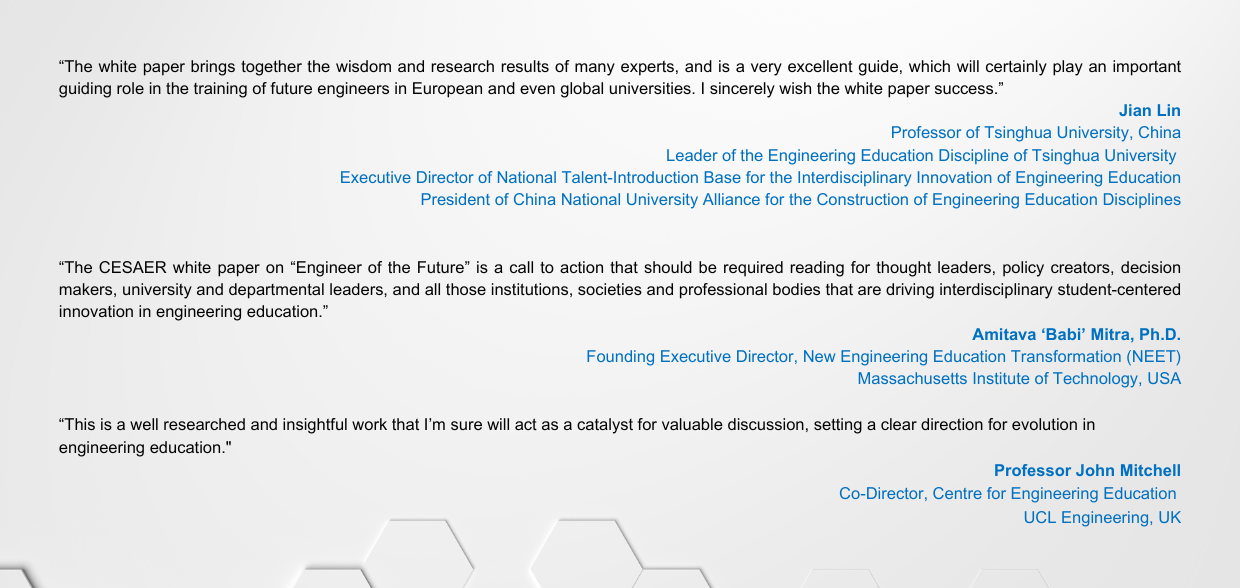In this white paper, we reflect on the evolution of engineering education to examine how it equips engineers of the future to contribute to a world in constant evolution. The overall intention of the paper is not to be a comprehensive and exhaustive ‘final word’, but to be a valuable contribution to a vibrant ongoing discussion around the developments shaping the future of engineering education that equips the engineers of the future with the right tools and competences to fully contribute to tackling local and global challenges.
We first lay out the new expectations for engineers in a Volatile, Uncertain, Complex and Ambiguous (VUCA) world. Faced with the challenges of the twenty-first century, the engineers of tomorrow are expected to have a strong scientific and technological foundation, and will greatly benefit from a broader interdisciplinary perspective, soft skills and an entrepreneurial spirit. Additionally, we argue that the internationalisation of studies, including all formats of mobility, which is being partly reshaped by the European Strategy for Universities, is a valuable avenue to acquire soft skills and intercultural sensibility.
Next, we underline the great impact that the green and digital transitions have on engineering education and the need for engineering students to grasp the key opportunities emerging with the twin transitions. We recommend that the next generation of engineers be educated to take a holistic approach in their profession, in which the United Nations Sustainable Development Goals (UNSDGs) play a central role, and to develop and deploy innovative and disruptive sustainable solutions and products. We expose ongoing trends in the development of AI, and argue that AI should meaningfully be integrated into learning practices.
We underline that cross-faculty collaborations, novel approaches to problem-solving such as PBL and CBL, and frequent contact with a diversity of stakeholders are many ways to foster these skills among students. In that sense, we recommend that engineers should both be trained to collaborate in a narrow sense among fellow professionals, but equally crucial is the opportunity to collaborate across disciplines.
The importance of fostering a lifelong learning mindset is covered as a core aspect of a future-oriented education and present some good practices in the development of lifelong learning activities.
Finally, we lay out how recommendations for a curriculum that ensures a broader perspective of the students, and that includes different methods of learning and teaching. We underline that the engineering curriculum should allow for student-centered education, engaging with a range of actors and having international opportunities, and aiming at contributing to finding solutions to societal challenges and dealing with innovation and complexity to foster critical thinking.
Throughout the paper, we provide examples from CESAER Members to illustrate practical implementations of our theories. We conclude with an overview of chapter recommendations, aiming to contribute to ongoing discussions about the future of engineering education and equipping future engineers to tackle local and global challenges.
Luc Taerwe
Lead writer of the white paper 'Engineer of the Future'
Former dean Faculty of Engineering and Architecture of Ghent University
We use both our own cookies and those of carefully selected partners we collaborate with.
Check out our detailed Cookie policy » and our Privacy policy » .